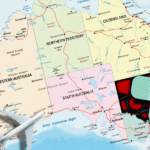Informal supervision arrangements at some practices are leaving trainers underpaid and underrecognised.
Say the RACGP, AMA and ACRRM suddenly got what they wanted, and 50% of medical graduates started specialising in general practice from next year and every year after that.
Who would train them?
While the above miracle seems somewhat unlikely, as the colleges and AMA ramp up campaigns to recruit students for general practice, it’s worth considering whether the GP supervisor infrastructure is fit for purpose.
“Recruitment of GP supervisors could be at risk,” General Practice Supervisors Australia’s research coordinator Dr Samia Toukhsati told The Medical Republic.
“It’s not adequately remunerated, not adequately recognised; people are burnt out and they’re sick of the burden of administration.”
According to Dr Toukhsati, who has co-authored several recent studies looking at the GP training environment, about 70% of current supervisors are experiencing high levels of disengagement and exhaustion, and a further 20% are looking to retire within the next five years.
In-depth interviews with 17 female GP supervisors revealed a fact which may go some way to explaining this level of burnout.
“We found that a lot of the women didn’t actually know that aspects of supervision are subsidised,” Dr Toukhsati said.
“There’s a practice subsidy and also a teaching allowance.
“These are paid to the practice and may or may not be passed on to the supervisor, but often they are.”
In addition to not being remunerated for the supervision that they were formally involved in, many of the GPs had also found themselves relegated to informal supervisory roles.
Basically, they still weren’t getting paid for their extra work and they weren’t getting the professional recognition for being a supervisor.
“There’s a lot of hidden labour,” Dr Toukhsati said.
It gets slightly worse.
When the female GP supervisors interviewed for the study tried to negotiate with practice owners around pay for the structured, on-the-books teaching they were doing – for which there is a teaching allowance – they were often unsuccessful.
“Once they raised it, some of them found that they were no longer invited to supervise, that was it,” Dr Toukhsati said.
In what Dr Toukhsati said was a “worst-case scenario”, one participant reported that the practice manager forged her signature on certain documents.
“I actually didn’t put down my name to actually be an official … supervisor,” the GP said.
“Although I was teaching, I was doing it in an unofficial manner.
“But my boss [practice owner] took it on himself with his wife to forge my signature to say that I was going to be prepared to be doing this teaching.
“One day, three registrars arrived.”
While outright forgery is uncommon, Dr Toukhsati said she had heard from multiple other GPs who were asked to take on the supervisor role without being properly informed about what it involved.
“One woman talked about being asked, ‘could you just sign this?’ … and she’d said ’look, that’s fine, as long as you don’t really want me to do anything,’” she said.
“Then, of course, she ends up having to be the supervisor.”
This isn’t to say that practices are getting fat off the government’s GP training subsidies, though.
“On average, practices are experiencing a net financial loss at all stages of GP training, from GPT1 through to 4,” Dr Toukhsati said.
“It does decline, so the losses are higher at GPT1 and they do drop off a little bit at 3 and 4.”
There are caveats to this – there’s a wide variation among practices and not all of them lose money on training.
So, what’s to be done?
Another piece of research that Dr Toukhsati was involved with found that cultural shifts at the practice level could help ease burnout among GP supervisors.
“Across all of our GP supervisors, at least half are not doing things like going home on time, taking a break for lunch, they’re over-committing,” she said.
While it’s tempting to recommend individual-focused fixes for this – things like saying “you should take more breaks” or “you should go home on time” – Dr Toukhsati said the change needed to happen at higher levels.
“Things they could do at the practice level is improve trust between people and sharing … things like rewarding peer support, rather than just martyring the people who work themselves really hard,” she said.
It shouldn’t stop at the practice level either.
“That’s another predictor of burnout – that feeling that you’re working within a broken system,” Dr Toukhsati said.
“At an individual level, sure, you can take a lunch break and go home on time, but you’re working in a system that’s underresourced.”
The only antidote to this sector-level ill? More funding and reform, of course.
“I’m reluctant to say it’s a crisis, but it is certainly urgent,” Dr Toukhsati said.





